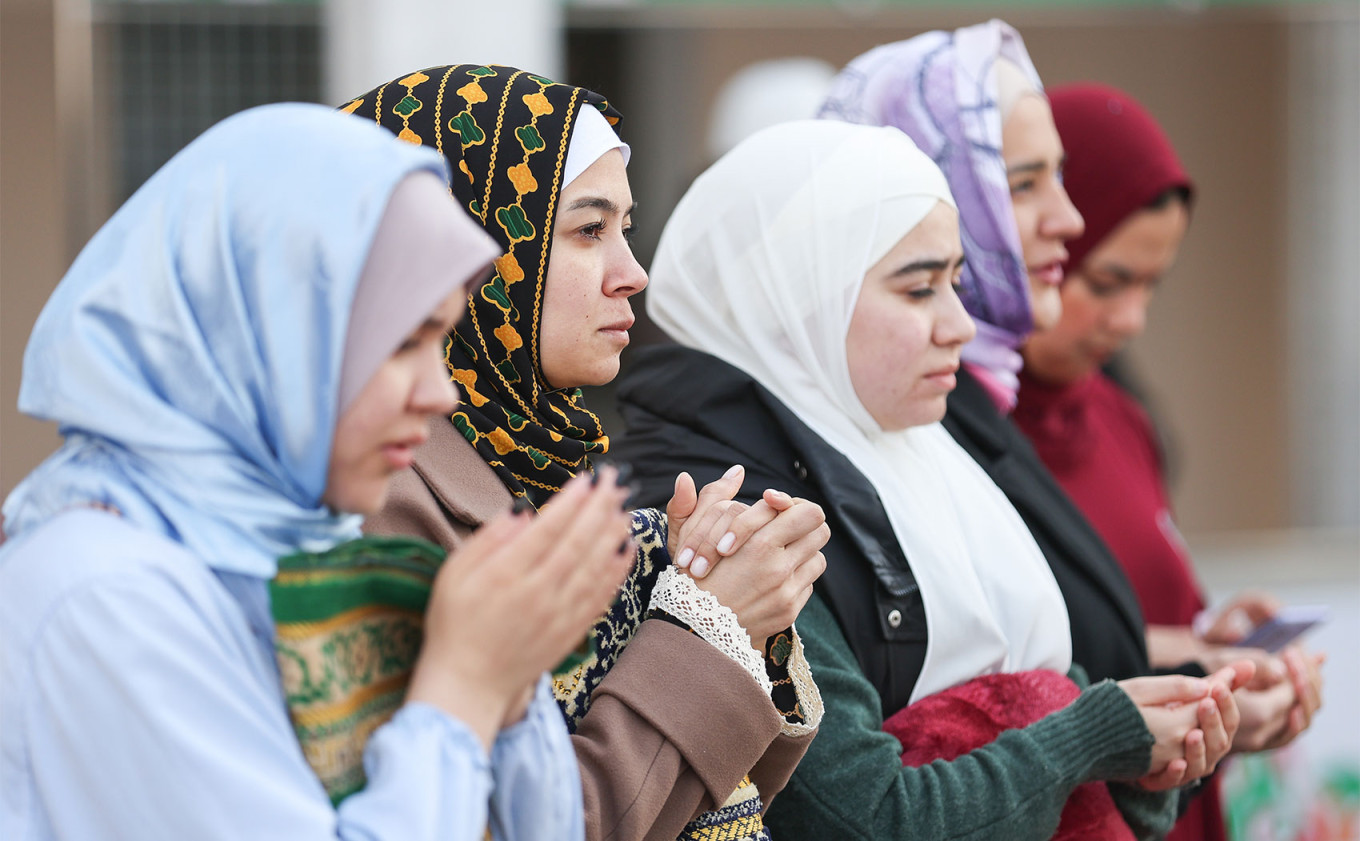Discovering Heartfelt Muslim Love Quotes For Deeper Connections
Detail Author:
- Name : Toni Kub
- Username : mckayla.little
- Email : yost.zetta@gleason.info
- Birthdate : 1973-02-09
- Address : 732 Betty Well Apt. 981 Marjorychester, NH 21316
- Phone : +1 (228) 541-0625
- Company : Stanton-Witting
- Job : Industrial Engineer
- Bio : Rerum et repudiandae alias ea tempora rem laudantium quia. Doloremque quaerat aut ut. Voluptatem adipisci possimus dolorem ad minus autem. Rerum iure qui dolorem est enim.
Socials
facebook:
- url : https://facebook.com/charitychristiansen
- username : charitychristiansen
- bio : Necessitatibus dolor dicta officia facilis rerum quia.
- followers : 1554
- following : 154
tiktok:
- url : https://tiktok.com/@christiansenc
- username : christiansenc
- bio : Et fuga quo molestiae aut sed ratione.
- followers : 1897
- following : 2480
linkedin:
- url : https://linkedin.com/in/cchristiansen
- username : cchristiansen
- bio : Deleniti perferendis aut cum perspiciatis.
- followers : 6875
- following : 2432
instagram:
- url : https://instagram.com/cchristiansen
- username : cchristiansen
- bio : Ut unde incidunt atque eos omnis quo. Maiores in eveniet voluptatem aut.
- followers : 6768
- following : 141
Have you ever stopped to think about what love truly means? For many, it's a feeling that shapes our lives, our relationships, and even our spiritual paths. When we look at the rich traditions of Islam, it's clear that love, in its many forms, holds a very special place. These teachings offer a beautiful framework for understanding connection, compassion, and devotion.
So, too it's almost, whether you are seeking inspiration for your own relationships, looking to deepen your spiritual bond, or simply curious about how love is viewed in Islam, there's a lot to explore. Muslim love quotes, drawn from the Quran, the sayings of Prophet Muhammad (peace be upon him), and the wisdom of scholars, really offer a window into this profound subject. They speak to the heart, offering guidance and comfort.
As a matter of fact, these quotes are not just pretty words; they are reflections of a way of life that values kindness, patience, and sincere affection. They help us see how love for God, love for our families, and love for humanity are all connected, weaving together a rather complete picture of what it means to care deeply. It's truly a wonderful thing to consider.
Table of Contents
- What is Love in Islam?
- The Essence of Divine Love: Connecting with Allah
- Love in Marriage: A Sacred Bond and Partnership
- Love for Family and Community: Building Stronger Ties
- Practical Ways to Express Love in a Muslim Context
- Finding Inspiration: Where to Look for Muslim Love Quotes
What is Love in Islam?
Basically, love in Islam is a very broad idea, encompassing so many different aspects of life. It begins with the concept of surrender, which is what the Arabic term "Islam" literally means. A Muslim, you know, is someone who accepts this surrender, believing in the oneness of Allah and following His will. This core idea, that of submission to God, really forms the basis for all other forms of love.
It's interesting how this surrender isn't about losing oneself, but rather about finding true peace and purpose. When we talk about love, it's not just a fleeting emotion; it's a commitment, a deep appreciation, and a desire for good for others. This is why, in Islam, love is seen as a powerful force for building strong connections and a just society.
As a matter of fact, the core tenet of Islam, the Shahadah, affirms the oneness of Allah. This declaration of faith and trust, which is one of the five pillars of Islam, is actually a beautiful expression of love for the Divine. It's a foundational belief that shapes how a Muslim views the world and their place in it, including how they love others.
The Essence of Divine Love: Connecting with Allah
The highest form of love in Islam is, quite simply, love for Allah. Muslims believe that Allah is the source of all love and compassion, and that loving Him means striving to live according to His guidance. This love is deeply personal, yet it also has a profound impact on how we interact with everyone around us. It's a bit like a wellspring that never runs dry.
You know, the Quran is filled with verses that speak to Allah's immense love for His creation. It describes Him as Al-Wadud, The Most Loving. This understanding encourages believers to seek closeness to Him through worship, remembrance, and good deeds. It's a continuous process of drawing nearer, really.
For example, a beautiful quote often shared is about how Allah loves those who are good-doers. This inspires us to be kind, generous, and just, not just for the sake of others, but as an act of devotion. It's a rather powerful motivation, you might say, to live a life that reflects divine attributes.
Surrender and Faith: The Foundation of Love
To become a Muslim, it is essential to utter the Shahada, a declaration of faith and trust. This act of faith is, in a way, an act of love. It's about trusting in the oneness of Allah and accepting His guidance. This surrender, which is what "Islam" literally means, illuminates the fundamental religious idea of Islam: that the believer accepts surrender.
Each of the five pillars of Islam, really, is an important part of being Muslim, and each one reinforces this loving connection to the Divine. From prayer to charity, these acts are expressions of faith and, by extension, love for Allah. They help to strengthen that bond, you know, over time.
Muslims believe that Muhammad (peace be upon him) is the final messenger of Allah, and that the Quran is His final revelation. These are central to understanding divine love, as they provide the instructions and examples for how to live a life that pleases God. It's all part of the journey, basically.
Love in Marriage: A Sacred Bond and Partnership
In Islam, marriage is seen as a very sacred covenant, a deep bond between two people that is meant to bring tranquility and mercy. It's not just a social contract; it's a spiritual partnership, a way to complete half of one's faith. This perspective means that love within marriage is nurtured and highly valued, you know, as a foundation for family life.
The Quran describes spouses as garments for one another, which is a really beautiful analogy. It suggests closeness, comfort, and protection. This means that husbands and wives are meant to support each other, to be a source of peace, and to help each other grow in their faith. It's a rather intimate connection, truly.
A common Muslim love quote for married couples speaks to this idea of mercy and affection. It reminds us that love isn't just about grand gestures, but also about daily kindness, patience, and understanding. These small acts, basically, build a strong and lasting relationship over time.
Prophetic Wisdom on Marital Affection
The life of Prophet Muhammad (peace be upon him) offers countless examples of how to show love and compassion within marriage. He was known for his kindness, his humor, and his deep respect for his wives. His actions and sayings provide a beautiful blueprint for a loving partnership, you know, for all to see.
For instance, there are many sayings that encourage husbands and wives to treat each other with gentleness and to forgive shortcomings. One famous saying suggests that the best among you are those who are best to their wives. This really puts a strong emphasis on good character within the home.
Similarly, the Prophet encouraged mutual consultation and affection. He taught that even a small act of kindness, like a loving glance, can be a form of worship. This shows just how deeply intertwined love and spirituality are in Islam, especially within the context of marriage. It's a rather holistic approach, basically.
Love for Family and Community: Building Stronger Ties
Love in Islam extends far beyond the marital bond, encompassing family, relatives, and the wider community. Honoring parents, caring for siblings, and showing compassion to neighbors are all acts of love that are highly rewarded. It's about creating a supportive network, you know, where everyone feels valued.
The concept of 'silat ar-rahim,' or maintaining ties of kinship, is very important. This means making an effort to stay connected with family, even distant relatives, and supporting them in times of need. It's a way of strengthening the social fabric, really, and ensuring that no one is left behind.
Furthermore, love for humanity is a fundamental principle. Muslims are encouraged to be kind to all people, regardless of their background or beliefs. The Prophet Muhammad (peace be upon him) taught that "none of you truly believes until he loves for his brother what he loves for himself." This is a powerful call to empathy and universal goodwill, you know, for everyone.
The Muslim Diaspora and Shared Values
At the same time, a growing Muslim diaspora has taken root in many areas, such as China, Australia, Europe, America and Canada, Latin America, and parts of Western, Central, and other regions. This spread has meant that the values of love, compassion, and community are expressed in diverse cultural contexts, yet they remain central.
These communities, though varied, share the common thread of Islamic teachings on love and connection. They often establish strong community centers and support networks, reflecting the emphasis on mutual aid and brotherhood/sisterhood. It's a testament to the enduring nature of these principles, you know, across the globe.
Understanding the origins of Islam, from the life of Prophet Muhammad to the early expansion of the Muslim community, is crucial to comprehending the depth and breadth of these values. They are not new ideas, but rather timeless principles that continue to resonate with people today, wherever they are, which is pretty amazing.
Practical Ways to Express Love in a Muslim Context
Expressing love in a Muslim context goes beyond just saying "I love you." It involves actions that reflect care, respect, and commitment. For instance, being patient, forgiving mistakes, and offering sincere advice are all ways to show love. It's about living out your affection, you know, in daily interactions.
Giving gifts, spending quality time together, and offering words of affirmation are also highly valued. The Prophet Muhammad (peace be upon him) encouraged giving gifts to one another as it increases love. These simple acts can really strengthen bonds and make people feel appreciated, which is quite important.
Moreover, performing acts of service for loved ones, like helping with chores or running errands, is a beautiful way to show care. It's about making someone's life easier and showing that you are there for them, in a very tangible way. These are just some practical ways to express love, you know, every single day.
Finding Inspiration: Where to Look for Muslim Love Quotes
If you're looking for Muslim love quotes, there are many rich sources. The Quran itself contains verses that speak to divine love, mercy, and compassion, which can be adapted for human relationships. These are the words of Allah, so they carry immense weight and wisdom, you know, for sure.
The Hadith, which are the sayings and actions of Prophet Muhammad (peace be upon him), are another incredible resource. His life was a living example of love, patience, and kindness, and his words offer direct guidance on how to cultivate loving relationships. You can find so much wisdom there, honestly.
Additionally, the writings of Islamic scholars, poets, and mystics often contain beautiful reflections on love. Figures like Rumi, for example, are famous for their profound expressions of divine and human love. Their words can really move the heart and offer new perspectives, which is quite nice.
When searching for these quotes, consider what kind of love you want to focus on – whether it's divine love, marital love, or love for family. Each category has its own unique set of inspiring words. You can learn more about Islamic teachings on our site, and find more quotes by exploring Prophetic wisdom on love and marriage. These resources can help you find just the right words to express your feelings, basically, in a meaningful way.
Frequently Asked Questions About Muslim Love Quotes
People often have questions about love in Islam, so here are a few common ones:
Is love allowed before marriage in Islam?
Generally, Islam encourages respectful interactions between men and women. While deep emotional attachment can develop, physical intimacy and unrestricted dating are typically not promoted before marriage. The focus is on building a relationship based on piety and mutual respect, with marriage as the proper framework for love to flourish. It's about protecting the dignity of both individuals, you know, in a way.
What does Islam say about love for Allah?
Islam teaches that love for Allah is the highest form of love and the ultimate goal of a believer. This love is expressed through worship, obedience to His commands, remembrance of Him, and striving to please Him in all aspects of life. It's a very deep and personal connection, really, that guides a Muslim's entire existence.
Are there specific prayers for love in Islam?
While there isn't one specific "love prayer" as such, Muslims can make personal supplications (du'a) to Allah asking for love, harmony, and blessings in their relationships, whether with spouses, family, or friends. Many verses from the Quran and sayings of the Prophet Muhammad (peace be upon him) can be used as part of these prayers, asking for mercy and affection to be instilled in hearts. It's a way of asking for divine assistance, basically, in strengthening bonds.


